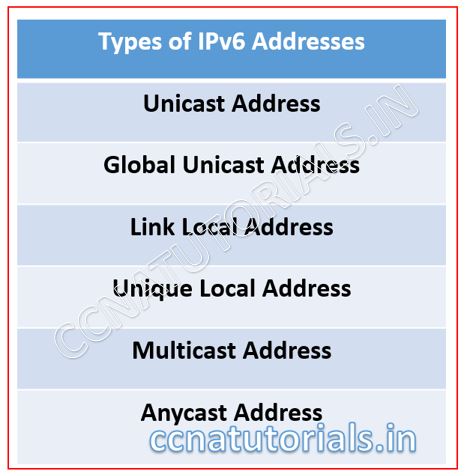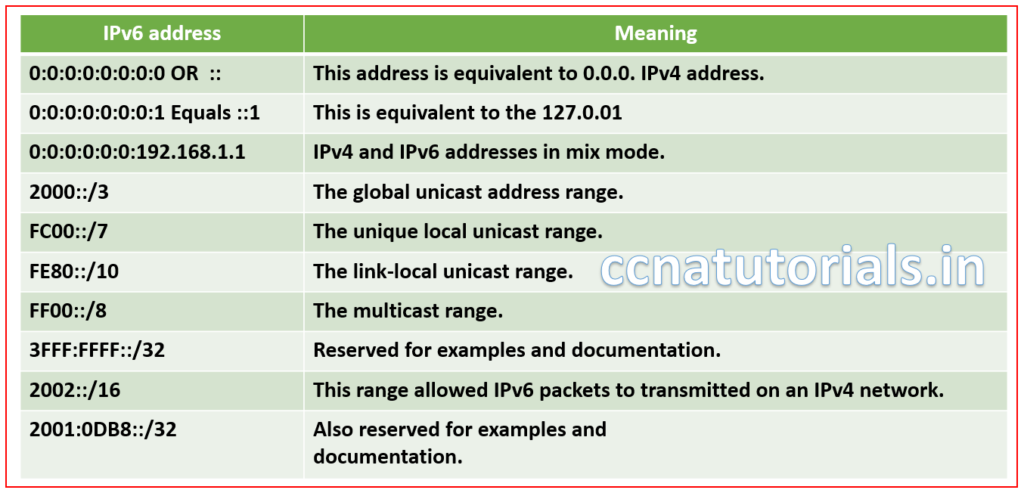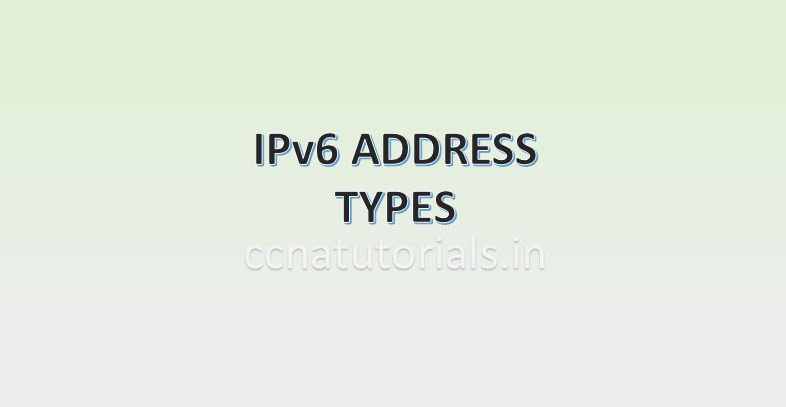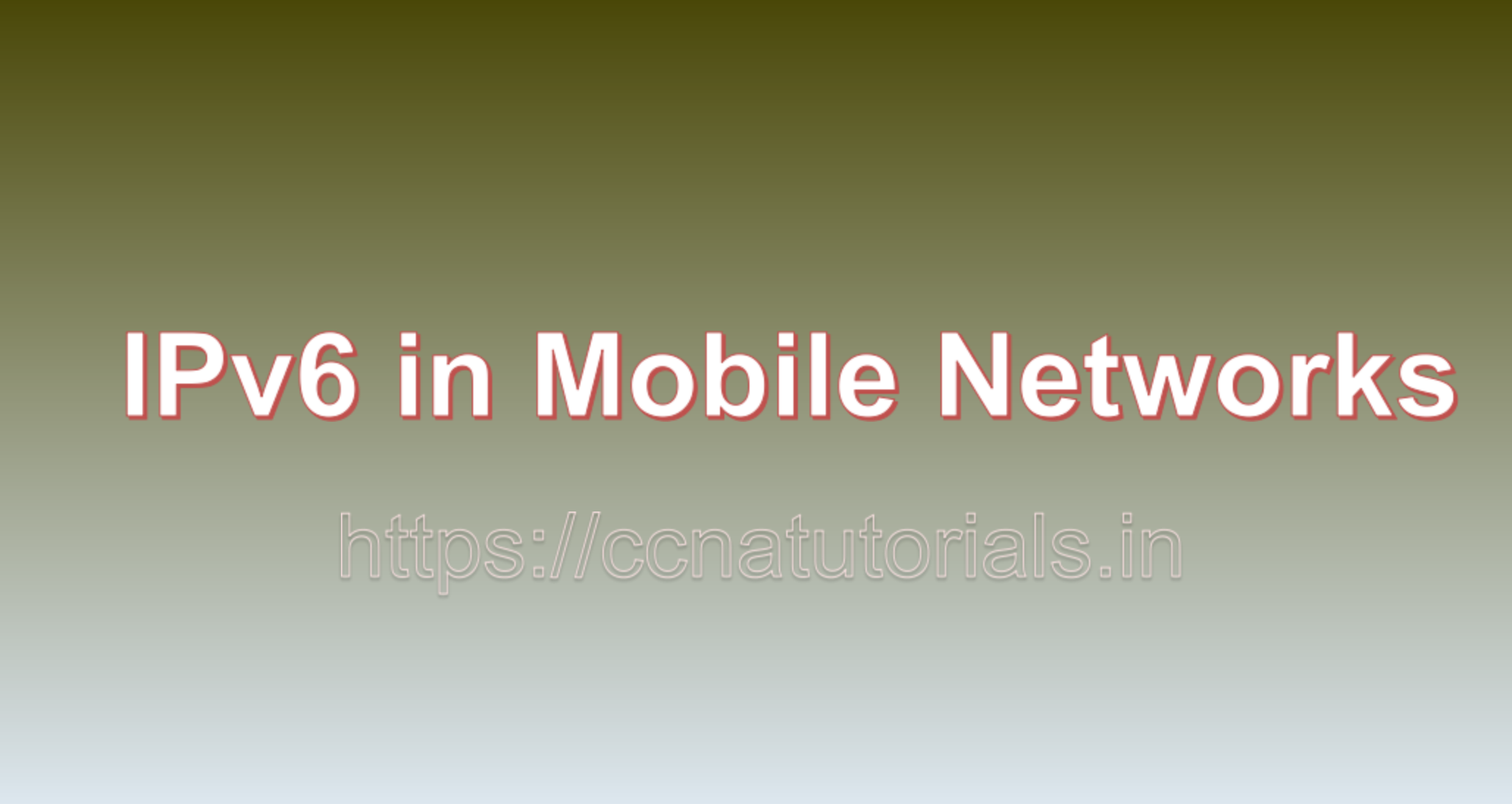Contents of this article
In this article I explain the IPv6 address types used in networking. Internet Protocol Version6 IPv6 is a type of internet protocol. We know about IPv4 and works with IPv4 for inter-networking and local networks. IPv4 address is a combination of 8 bytes or 32 bits. Every device connected in a network or internet required an unique IP address. There are billions devices which works on internet. IPv4 have limited IP addresses that is 232.
Which are not sufficient in today scenario. To overcome this problem Internet Protocol Version6 IPv6 invented by IETF team. IPv6 address is a combination of 128 bits. So we have now 2128 addresses to use in inter-networking or internet. The numbers of IPv6 are billions of billions. These address provides security better than IPv4. Later I describe the security concern in Internet Protocol Version 6 IPv6. The main purpose of using Internet Protocol Version 6 IPv6 is to increase the IP address for devices connected in internet.
Initially the IETF ( Internet Engineering Task Force) developed the internet protocol to provide the communication between devices in a network. IPv4 developed to provide the unique identity to the devices of network. Internet was used by the cooperative organizations in these days. But now every one need internet via mobile or computer. So the addresses provided by IPv4 become less than the users. To overcome this problem NAT technique used in routers.
In our previous articles I describes the NAT ( Network Address Translation). IPv6 is the perfect solution to overcome the sufficient address problem and eliminate the NAT technology. Internet Protocol Version6 IPv6 follows the IPv4 protocols and allow the devices to communicate with each other over internet. Internet Protocol Version6 IPv6 comes in 1998 for commercial use but the devices was not compatible with IPv6. But now all devices are compatible with IPv4 and IPv6.
IPv6 Address Types
We know the types of IPv4 addresses like unicast, broadcast addresses. IPv6 address types also defined according to requirement of IPv4 address system. These addresses are required for data packet transfer in a network or internet. IPv6 address system have its own address systems like unicast, link local and unique local address and multicast address. In this article lets describe the different IPv6 address types below.

IPv6 address types unicast address
Unicast means transmitted for a particular device. The unicast packets delivered to a single interface. The interface may be of any computer or router or switch. We know every device need an interface to connect with any network or internet. A unique IP address assigned to that interface. This unique address works as unicast address. IPv6 address system have same unicast address system like IPv4 address system.
IPv6 address types Global unicast address
IPv6 Global unicast address is routable address like IPv4 address system. IPv6 Global unicast address starts from 2000::/3. The last 64 bits of an IPv6 address works for router interface addresses. These 64 bits are the unique host ID for a networking device. ISP provides only starting 48 bits for global unicast address for interface or networking device like router.
IPv6 address types Link Local address
Link local addresses are like APIPA ( Automatic Private IP Address). These addresses not required to be routed in networking devices. In IPv6 address types the link local address starts with FE80::/10 . here /10 means only first 10 bits are used for link local address in IPv6 address system. The link local address allows to create small LAN which do not required to be routed but use the network for sharing resources locally only.
IPv6 address types Unique local addresses
Unique local addresses are also used for local network. the unique local addresses are also not routed on internet routing devices. These addresses are similar to the private IPv4 address system. These addresses are globally unique addresses. Unique local addresses starts from FC00::/7 similar to the link local addresses describes above. IPv6 unique local address replaced the site local addresses like IPv4 private addresses.
IPv6 address types Multicast addresses
Multicast address packets delivered to all interfaces routed in routers. Multicast addresses also known as one to many addresses. In IPv6 address types the multicast address starts with FF.
IPv6 address types Anycast address
An anycast address denotes the multiple interfaces on multiple devices. The anycast packet delivered to a single device only. Anycast addresses configured on routers only. A source address of a packet never be an anycast address.

IPv6 address system have the similar IPv4 addresses which we are generally used in networking. Example of these common addresses is local address 127.0.0.1. below is the list of similar addresses used in IPv6 address system. See the below list of some special IPv6 addresses.
I give you an idea about the IPv6 address types used in networking today. These terms are small but important to distinguish the different addresses. For any query or suggestion on this article you may contact us or drop a comment below. Your suggestions are always welcome by us.






